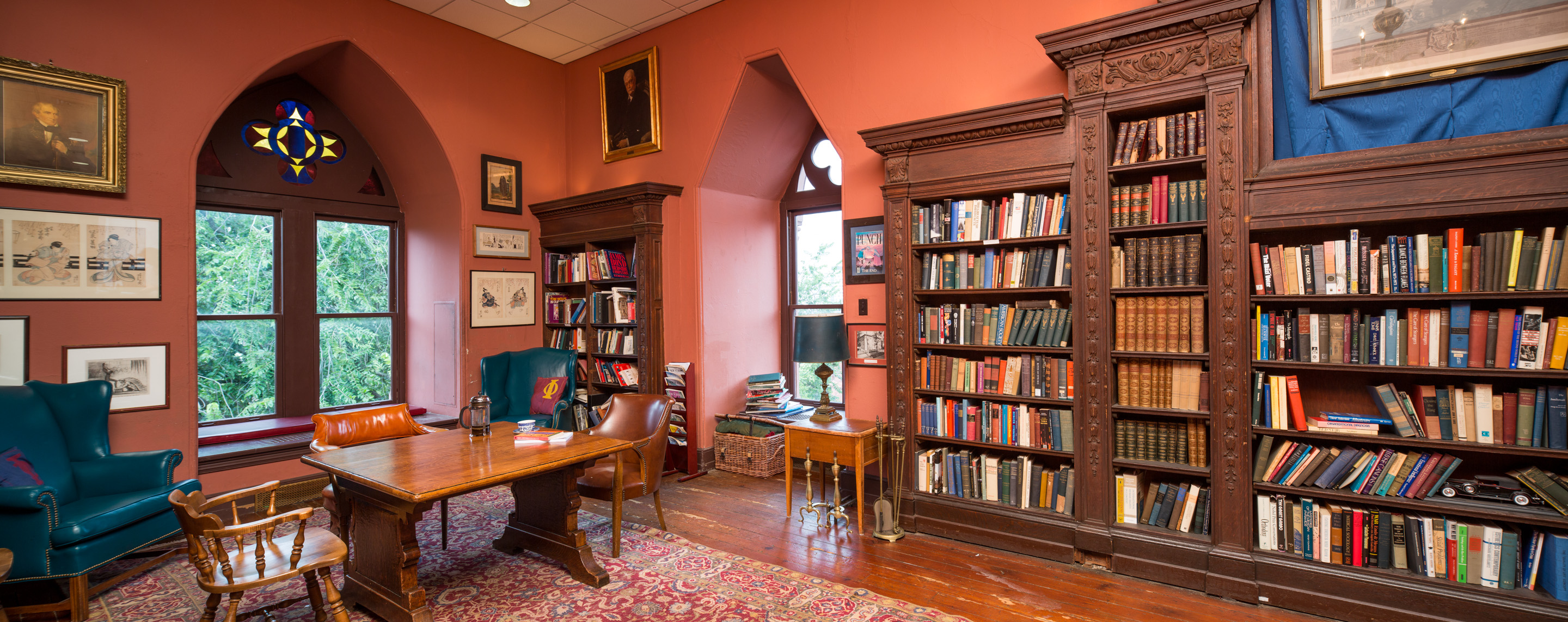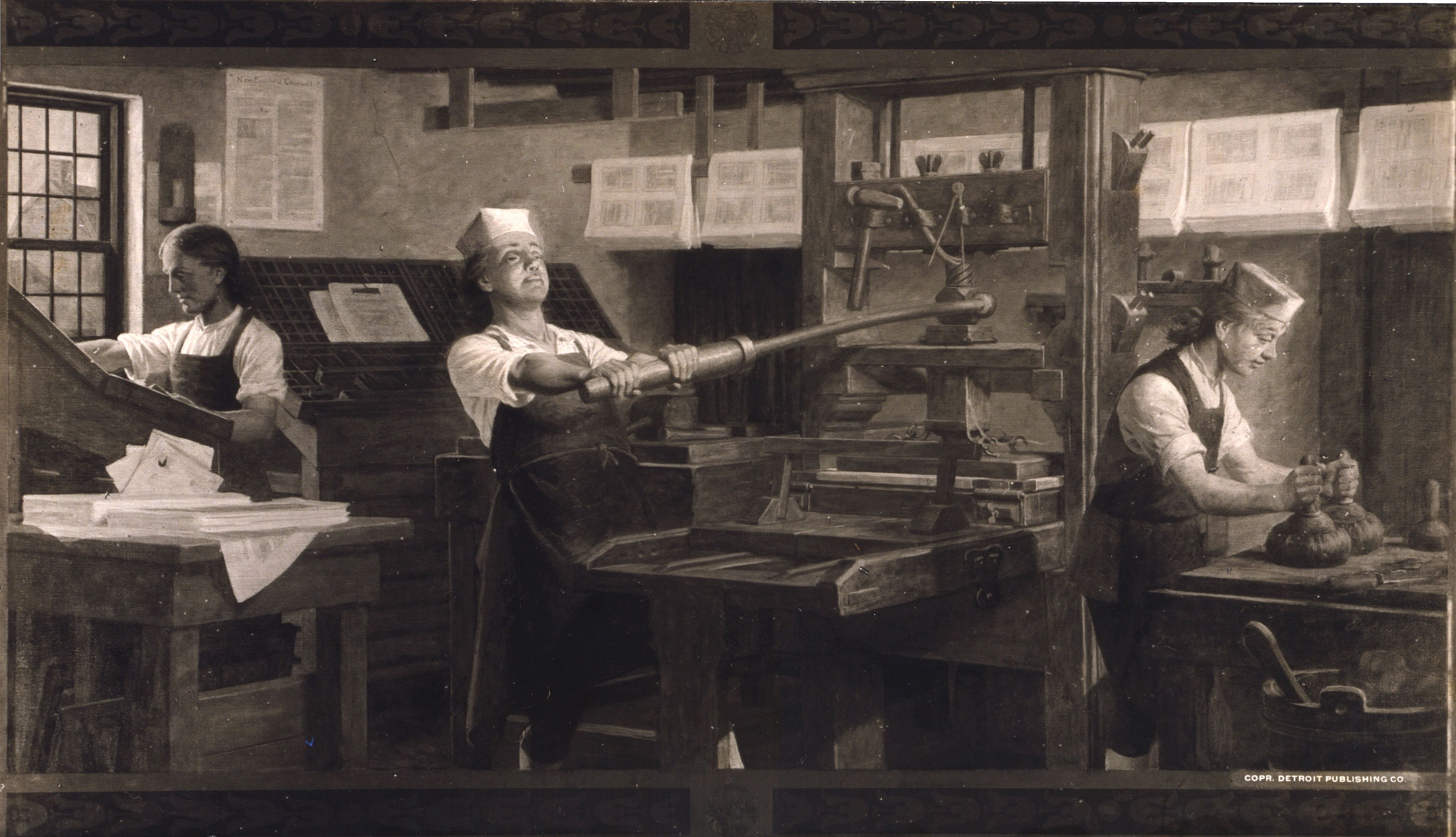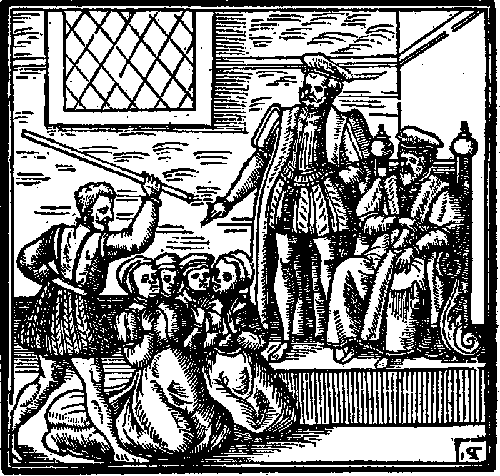|
Philomathy
A philomath () is a lover of learning and studying. The term is from Greek (; "beloved", "loving", as in philosophy or philanthropy) and , (, ; "to learn", as in polymath). Philomathy is similar to, but distinguished from, philosophy in that , the latter suffix, specifies "wisdom" or "knowledge", rather than the process of acquisition thereof. Philomath is not synonymous with polymath, as a polymath is someone who possesses great and detailed knowledge and facts from a variety of disciplines, while a philomath is someone who greatly enjoys learning and studying. Overview The shift in meaning for is likely a result of the rapid categorization during the time of Plato and Aristotle of their in terms of education: arithmetic, geometry, astronomy, and music (the quadrivium), which the Greeks found to create a "natural grouping" of mathematical (in the modern usage; "" in the ancient usage) precepts. In a philosophical dialogue, King James penned the character Philomathes to ... [...More Info...] [...Related Items...] OR: [Wikipedia] [Google] [Baidu] [Amazon] |
Lexico
''Lexico'' was a dictionary website that provided a collection of English and Spanish dictionaries produced by Oxford University Press (OUP), the publishing house of the University of Oxford. While the dictionary content on ''Lexico'' came from OUP, this website was operated by Dictionary.com, whose eponymous website hosts dictionaries by other publishers such as Random House. The website was closed and redirected to Dictionary.com on 26 August 2022. Before the Lexico site was launched, the ''Oxford Dictionary of English'' and ''New Oxford American Dictionary'' were hosted by OUP's own website ''Oxford Dictionaries Online'' (''ODO''), later known as ''Oxford Living Dictionaries''. The dictionaries' definitions have also appeared in Google Dictionary, Google definition search and the Dictionary (software), Dictionary application on macOS, among others, licensed through the Oxford Dictionaries API. History In the 2000s, OUP allowed access to content of the ''Compact Oxford Englis ... [...More Info...] [...Related Items...] OR: [Wikipedia] [Google] [Baidu] [Amazon] |
Astronomy
Astronomy is a natural science that studies celestial objects and the phenomena that occur in the cosmos. It uses mathematics, physics, and chemistry in order to explain their origin and their overall evolution. Objects of interest include planets, natural satellite, moons, stars, nebulae, galaxy, galaxies, meteoroids, asteroids, and comets. Relevant phenomena include supernova explosions, gamma ray bursts, quasars, blazars, pulsars, and cosmic microwave background radiation. More generally, astronomy studies everything that originates beyond atmosphere of Earth, Earth's atmosphere. Cosmology is a branch of astronomy that studies the universe as a whole. Astronomy is one of the oldest natural sciences. The early civilizations in recorded history made methodical observations of the night sky. These include the Egyptian astronomy, Egyptians, Babylonian astronomy, Babylonians, Greek astronomy, Greeks, Indian astronomy, Indians, Chinese astronomy, Chinese, Maya civilization, M ... [...More Info...] [...Related Items...] OR: [Wikipedia] [Google] [Baidu] [Amazon] |
Philomathean Society (New York University)
Philomathean Society of the University of Pennsylvania is a College literary societies, collegiate literary society, the oldest student group at the university, and the oldest continuously-existing collegiate literary society in the United States.Columbia University's Philolexian Society was founded in 1802. Further, the Union-Philanthropic Society asserts continuous existence since 1789 and the American Whig-Cliosophic Society draws its history to 1769; both claims are disputed by the Philomatheans because the present societies are mergers of two other societies and thus represent new entities, founded in 1929 and 1928, respectively. Founded in 1813, its goal is "to promote the learning of its members and to increase the academic prestige of the University." History Philomathean Society, was founded on October 2, 1813, by all thirteen members of the junior class, its original purpose being "the advancement of learning;" a counterweight and complement to Penn's academic cours ... [...More Info...] [...Related Items...] OR: [Wikipedia] [Google] [Baidu] [Amazon] |
Philomathean Society
Philomathean Society of the University of Pennsylvania is a collegiate literary society, the oldest student group at the university, and the oldest continuously-existing collegiate literary society in the United States.Columbia University's Philolexian Society was founded in 1802. Further, the Union-Philanthropic Society asserts continuous existence since 1789 and the American Whig-Cliosophic Society draws its history to 1769; both claims are disputed by the Philomatheans because the present societies are mergers of two other societies and thus represent new entities, founded in 1929 and 1928, respectively. Founded in 1813, its goal is "to promote the learning of its members and to increase the academic prestige of the University." History Philomathean Society, was founded on October 2, 1813, by all thirteen members of the junior class, its original purpose being "the advancement of learning;" a counterweight and complement to Penn's academic coursework. In the first meeti ... [...More Info...] [...Related Items...] OR: [Wikipedia] [Google] [Baidu] [Amazon] |
Philomathean Literary Society (Erskine College)
Philomathean Society of the University of Pennsylvania is a College literary societies, collegiate literary society, the oldest student group at the university, and the oldest continuously-existing collegiate literary society in the United States.Columbia University's Philolexian Society was founded in 1802. Further, the Union-Philanthropic Society asserts continuous existence since 1789 and the American Whig-Cliosophic Society draws its history to 1769; both claims are disputed by the Philomatheans because the present societies are mergers of two other societies and thus represent new entities, founded in 1929 and 1928, respectively. Founded in 1813, its goal is "to promote the learning of its members and to increase the academic prestige of the University." History Philomathean Society, was founded on October 2, 1813, by all thirteen members of the junior class, its original purpose being "the advancement of learning;" a counterweight and complement to Penn's academic cours ... [...More Info...] [...Related Items...] OR: [Wikipedia] [Google] [Baidu] [Amazon] |
Philomath, Oregon
Philomath ( ) is a city in Benton County, Oregon, United States. It was named for Philomath (Greek, "love of learning") College. The population was 5,838 as of the 2023 census population estimates. It is part of the Corvallis, Oregon, Metropolitan Statistical Area. History Philomath was named after the Philomath College which was founded in 1867 by the United Brethren Church. The name of the college and city was derived from two Greek words meaning "lover of learning". The city was incorporated on October 20, 1882. The college closed in 1929 due to a dramatic decline in enrollment. Geography Philomath is west of Corvallis on U.S. Route 20. According to the United States Census Bureau, the city has a total area of , of which is land and is water. Climate This region experiences warm (but not hot) and dry summers, with no average monthly temperatures above . According to the Köppen Climate Classification system, Philomath has a warm-summer Mediterranean climate, ab ... [...More Info...] [...Related Items...] OR: [Wikipedia] [Google] [Baidu] [Amazon] |
Benjamin Franklin
Benjamin Franklin (April 17, 1790) was an American polymath: a writer, scientist, inventor, statesman, diplomat, printer, publisher and Political philosophy, political philosopher.#britannica, Encyclopædia Britannica, Wood, 2021 Among the most influential intellectuals of his time, Franklin was one of the Founding Fathers of the United States; a Committee of Five, drafter and signer of the United States Declaration of Independence, Declaration of Independence; and the first United States Postmaster General, postmaster general. Born in the Province of Massachusetts Bay, Franklin became a successful Early American publishers and printers, newspaper editor and printer in Philadelphia, the leading city in the colonies, publishing ''The Pennsylvania Gazette'' at age 23. He became wealthy publishing this and ''Poor Richard's Almanack'', which he wrote under the pseudonym "Richard Saunders". After 1767, he was associated with the ''Pennsylvania Chronicle'', a newspaper known for it ... [...More Info...] [...Related Items...] OR: [Wikipedia] [Google] [Baidu] [Amazon] |
Daemonologie
''Daemonologie''—in full ''Dæmonologie, In Forme of a Dialogue, Divided into three Books: By the High and Mightie Prince, James &c.''—was first published in 1597 by King James VI of Scotland (later also James I of England) as a philosophical dissertation on contemporary necromancy and the historical relationships between the various methods of divination used from ancient black magic. It was reprinted again in 1603 when James took the throne of England. The widespread consensus is that King James wrote ''Daemonologie'' in response to sceptical publications such as Reginald Scot's '' The Discoverie of Witchcraft.'' ''Daemonologie'' included a study of demonology and the methods demons used to bother troubled men. The book endorses the practice of witch hunting. This book is believed to be one of the main sources used by William Shakespeare in the production of ''Macbeth''. Shakespeare attributed many quotes and rituals found within the book directly to the Weird Sist ... [...More Info...] [...Related Items...] OR: [Wikipedia] [Google] [Baidu] [Amazon] |
Epistemology
Epistemology is the branch of philosophy that examines the nature, origin, and limits of knowledge. Also called "the theory of knowledge", it explores different types of knowledge, such as propositional knowledge about facts, practical knowledge in the form of skills, and knowledge by acquaintance as a familiarity through experience. Epistemologists study the concepts of belief, truth, and justification to understand the nature of knowledge. To discover how knowledge arises, they investigate sources of justification, such as perception, introspection, memory, reason, and testimony. The school of skepticism questions the human ability to attain knowledge while fallibilism says that knowledge is never certain. Empiricists hold that all knowledge comes from sense experience, whereas rationalists believe that some knowledge does not depend on it. Coherentists argue that a belief is justified if it coheres with other beliefs. Foundationalists, by contrast, maintain th ... [...More Info...] [...Related Items...] OR: [Wikipedia] [Google] [Baidu] [Amazon] |
James VI And I
James VI and I (James Charles Stuart; 19 June 1566 – 27 March 1625) was King of Scotland as James VI from 24 July 1567 and King of England and King of Ireland, Ireland as James I from the union of the Scottish and English crowns on 24 March 1603 until Death and funeral of James VI and I, his death in 1625. Although he long tried to get both countries to adopt a closer political union, the kingdoms of Kingdom of Scotland, Scotland and Kingdom of England, England remained sovereign states, with their own parliaments, judiciaries, and laws, ruled by James in personal union. James was the son of Mary, Queen of Scots, and a great-great-grandson of Henry VII of England, Henry VII, King of England and Lord of Ireland, and thus a potential successor to all three thrones. He acceded to the Scottish throne at the age of thirteen months, after his mother was forced to abdicate in his favour. Although his mother was a Catholic, James was brought up as a Protestant. Four regents gove ... [...More Info...] [...Related Items...] OR: [Wikipedia] [Google] [Baidu] [Amazon] |
Quadrivium
From the time of Plato through the Middle Ages, the ''quadrivium'' (plural: quadrivia) was a grouping of four subjects or arts—arithmetic, geometry, music, and astronomy—that formed a second curricular stage following preparatory work in the ''trivium'', consisting of grammar, logic, and rhetoric. Together, the '' trivium'' and the ''quadrivium'' comprised the seven liberal arts, and formed the basis of a liberal arts education in Western society until gradually displaced as a curricular structure by the ''studia humanitatis'' and its later offshoots, beginning with Petrarch in the 14th century. The seven classical arts were considered "thinking skills" and were distinguished from practical arts, such as medicine and architecture. The ''quadrivium'', Latin for 'four ways', and its use for the four subjects have been attributed to Boethius, who was apparently the first to use the term when affirming that the height of philosophy can be attained only following "a sort of four ... [...More Info...] [...Related Items...] OR: [Wikipedia] [Google] [Baidu] [Amazon] |
Music Theory
Music theory is the study of theoretical frameworks for understanding the practices and possibilities of music. ''The Oxford Companion to Music'' describes three interrelated uses of the term "music theory": The first is the "Elements of music, rudiments", that are needed to understand Musical notation, music notation (key signatures, time signatures, and Chord chart, rhythmic notation); the second is learning scholars' views on music from Ancient history, antiquity to the present; the third is a sub-topic of musicology that "seeks to define processes and general principles in music". The musicological approach to theory differs from music analysis "in that it takes as its starting-point not the individual work or performance but the fundamental materials from which it is built." Music theory is frequently concerned with describing how musicians and composers make music, including Musical tuning, tuning systems and composition methods among other topics. Because of the ever-expan ... [...More Info...] [...Related Items...] OR: [Wikipedia] [Google] [Baidu] [Amazon] |









